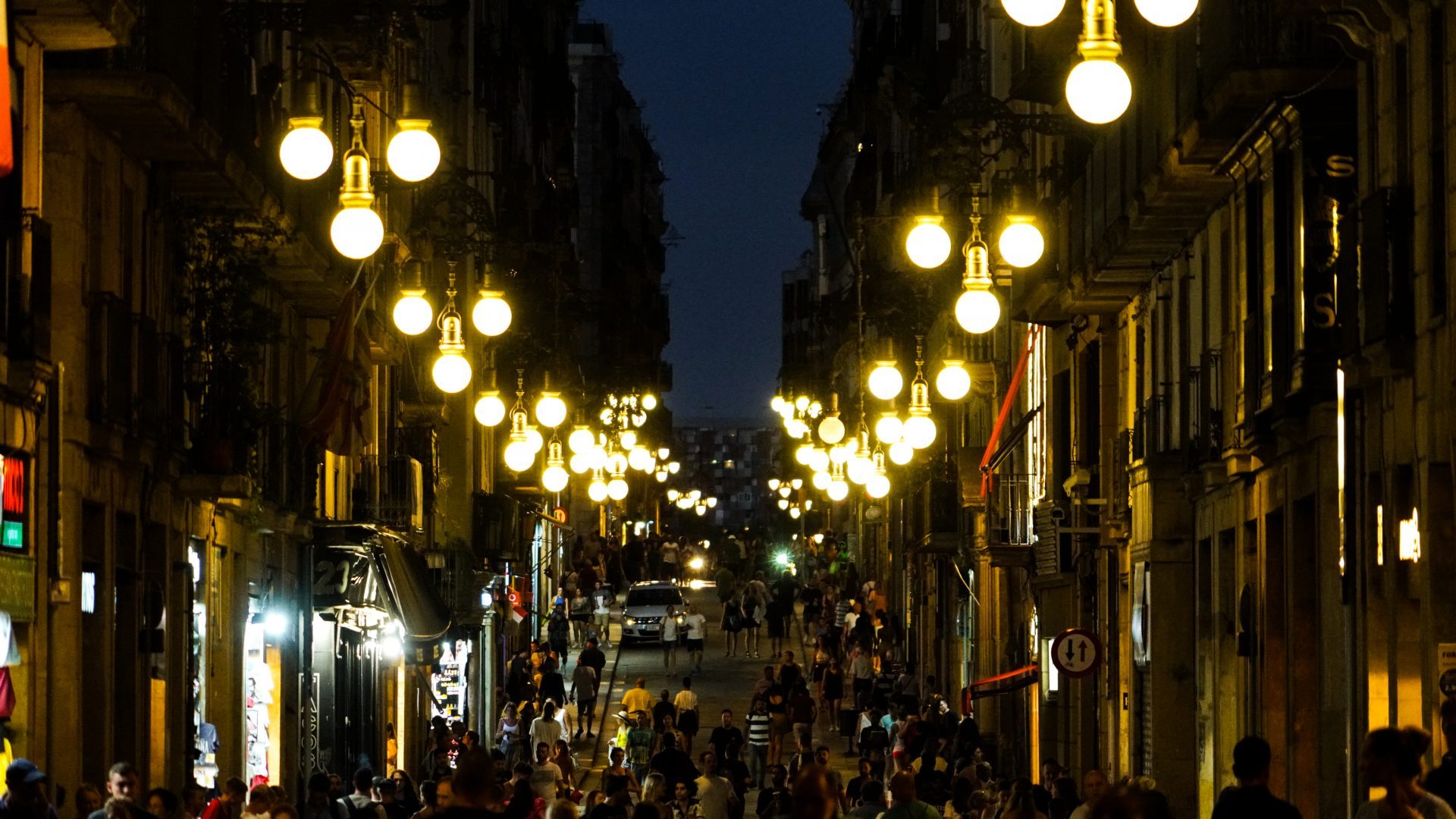“It’s a shame. It really chased away our dream,” says Jo Richardson. With her husband, she had been planning to get around the post-Brexit end of free movement by buying a property in Spain via the “golden visa”.
This controversial scheme allows non-EU foreign investors to obtain right of residence in the country, and freedom of movement around the Schengen area, simply by purchasing property worth a minimum of €500,000. It has been increasingly taken up by Britons and others over recent years. But then came the Spanish government’s announcement in April that it wanted to scrap the scheme.
The Richardsons could still gamble and try to rush through a purchase before the scheme ends – which now looks likely to be in January. But, says Jo, “if it’s removed before or if we’re unable to get it in time, it means we will have a property in Spain that we wouldn’t be able to visit as much as we want. What do you do if you have problems with health, burglary, squatters or flooding?”
The couple is now considering all options, including buying in another country that still has the scheme. “Our investment would have benefited everyone, we would have employed local people and bought some furniture. This is a loss for the economy.”
Spain’s socialist government, led by Pedro Sánchez hopes scrapping the golden visa will help ease housing shortages and make homes affordable again for local residents. One parliamentary attempt failed when opposition parties Partido Popular and Vox voted against, but Sánchez has now added measures that would end the scheme as an amendment to an existing scheme that has already cleared some stages of the parliamentary process. Now, only debates in congress and the senate remain.
Maryem Essadik, an immigration lawyer at Marfour International Law Firm, which helps foreigners to get visas to live in Spain, says: “We expect one day they will say ‘today it’s the end of the golden visa’.
“When the news came out, a lot of people started to contact us. Before, we had a few requests a week for the golden visa. Now, it’s every day. People are asking us, what’s going to happen? I was planning to buy property, should I buy it? Wait? When will it be approved? We’ve had a lot of questions but not many answers.”
Golden visas have become very popular in recent years, especially for British people after Brexit. The Spanish version provides freedom of movement in Spain, and inside the Schengen zone without the need for additional visas.
People who buy one “have this possibility to come a few times a year and not be a tax resident in Spain. Just coming one day to the country is enough to keep this visa and not be a tax resident in Spain, which is good because the tax rate is quite high,” explains Essadik. Other visas do exist but do not provide the same benefits and have stricter restrictions.
Sharon, another Briton, is also disappointed by the news. She and her husband already own a house on the Spanish coast, purchased for €145,000, and were planning to make another real estate investment.
By buying a bigger property and combining it with the previous purchase, they thought they would be able to access the golden visa by reaching the minimum investment of €500,000. “As we don’t know when this visa will stop, buying something else for more than €300,000 and keeping the other apartment was too risky. The plan isn’t working any more,” Sharon says. “It’s another blow. A lot of British people in Spain do not support Brexit, and the cost of that is still there. We are very disappointed, because it looks like a perfect visa.”
Concerns are also high among those who have already obtained their golden visa. Diana Joseph, who has just renewed hers for the next five years, says she doesn’t know what the future holds.
“I don’t have any information, but presumably it would be even more restrictive for us,” she says. “We are very worried because we invested a lot of money here and we have a whole life here, so if we have to cut down on this, it would be a great shame.
“We love to come to our house in Spain. It’s frustrating because we only benefit Spain, we take nothing from the country, we pay to be here. We pay taxes, we don’t use any public services. We feel this is quite unjustified,” she says.
Sánchez’s predecessors in the conservative Spanish government of Mariano Rajoy implemented golden visas in 2013 in order to revive an economy that had been mired in crisis. Since then, around 15,000 such visas have been granted in Spain, the vast majority to Chinese, Russians and Britons. According to data from the Spanish authorities, 90% of the visas are granted in six Spanish regions – Barcelona, Madrid, Málaga, Alicante, the Balearic Islands and Valencia.
Eduardo González de Molina, associate professor of social sciences at Carlos III University of Madrid, says: “All these places where they have bought a property have a very tight local market. If we take the example of Barcelona, the golden visa represents 5% of last year’s total home sales transactions. It’s not super high, but that is enough to have some impact on the housing market,” adds González de Molina, a former policy adviser at Barcelona’s city council.
Many cities across Spain are dealing with a severe housing crisis, accentuated by mass tourism and short-term rentals such as Airbnb. Many residents, especially young people, have difficulty finding affordable housing.
More than 60% of Spanish 18- to 34-year-olds still live in the family home. Between 2008 and 2022, Spain had the fastest-rising rate among major European economies of young people living with their parents.
The Sánchez government believes that ending the golden visa will provide a little respite for locals in the face of these challenges. Housing minister Isabel Rodríguez has said: “We prioritise housing as a right and not as speculation. Currently, 94 out of every 100 visas of this type are linked to real estate investment, and it occurs mostly in cities where the housing market is already highly strained.”
However, some question this justification. Jo Richardson says: “I’m not sure that what’s going on in Spain regarding the housing stock and prices is a reflection of the golden visas. There are a lot of properties well below €500,000 in Spain.”
Other countries facing a housing crisis have decided to change their golden visa policies in recent years. Portugal scrapped its property-based golden visa last year after protests about inflation and rising real estate costs in big cities such as Lisbon and Porto.
Greece, a country with one of the lowest golden visa thresholds for investment at just €250,000, still offers one, but plans to considerably increase the minimum purchase value to help tackle the housing crisis.
The European Commission is also urging member states to stop all investment citizenship schemes and to ensure that rigorous controls are in place to address the risks posed by investment residency programmes following the 2022 Russian invasion of Ukraine.
The commission points out that “investment residency programmes increase security risks, money laundering, tax fraud and corruption for member states and the EU as a whole.”
Spain still reported a significant rise in home purchases by foreigners in the last quarter of 2023. “The housing crisis is a multifactorial crisis. Every step helps, even if these steps are small, which is the case here,” says González de Molina.
“The golden visa is not the main factor by any means, but it’s a factor that makes the situation worse. The main solution remains to increase permanent, affordable social housing for locals by increasing stocks. If you have big stocks, you can compete and put pressure on the private housing sector, so you have indirect rent control.”
Spain’s social housing stock is just 1.5% of all homes, compared with a European average of 9%, according to a report from the Bank of Spain. The Spanish government’s current plan for public housing will add 184,000 units over the next three years, but the Bank of Spain estimates that an additional 1.5m more homes are needed to meet the European average. “It will take more than a decade,” says González de Molina.
In the meantime, other actions can be taken. The city of Barcelona, for example, which is the most expensive city in Spain for renting, has decided to ban short-term tourist apartment rentals by 2028 to help address its housing crisis. The mayor estimates that rents in its city have gone up by 68% in the last 10 years while house prices have also increased by 38%.
It remains to be seen what impact the end of golden visas will have on rising property and rental prices in Spain. But what should Britons who want to live in the country do in the face of this uncertainty, when the new British government continues to insist there will be no return to the days of free movement?
Maryem Essadik says: “Others’ experience has shown us that normally when a change in the law is approved, it comes in sometimes two to nine months later. So we still have time. But we must emphasise that there are also plenty of other visas, more stable in the long term, that enable you to live in Spain.”



